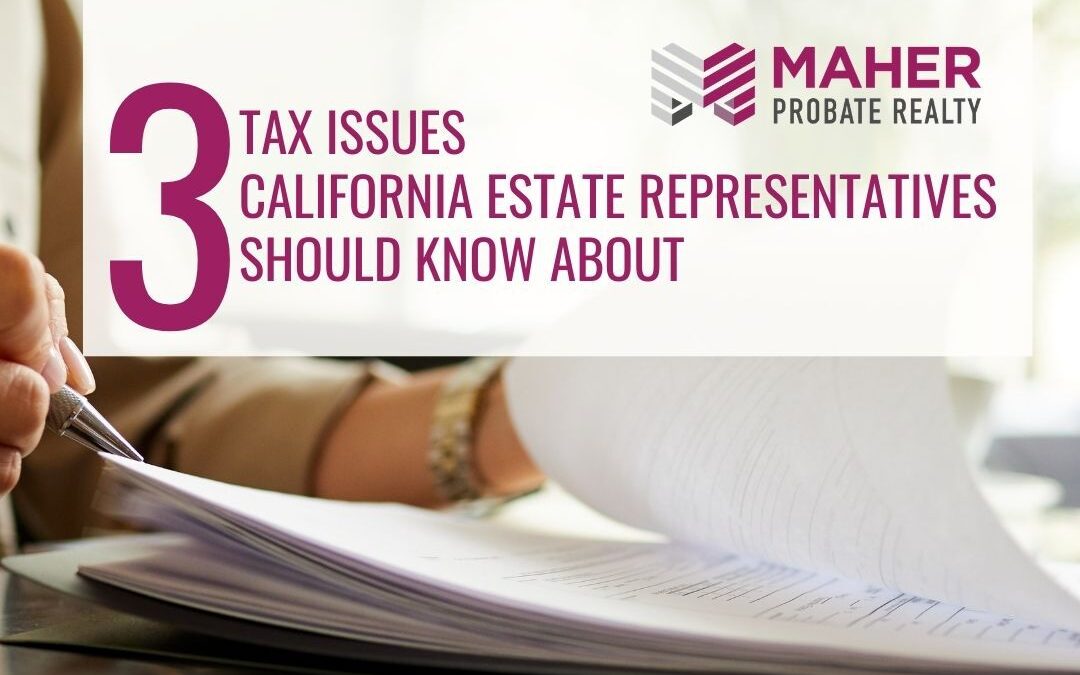As the Executor or Estate Representative, taking care of the estate’s tax obligations will be among your many responsibilities. When dealing with California probate and estate sales, there are three primary tax considerations:
1. Estate taxes. These are Federal taxes that apply to a person’s assets after their death. Despite the outsized attention this topic sometimes gets, estate taxes only apply to assets over $11.07 million dollars as of 2021. This is calculated per taxpayer, so in the case of a married couple, the joint assets could be just north of $22 million dollars before estate taxes kick in. Even in those cases, there are trust strategies to mitigate the tax impact.
California does not have an estate tax or an inheritance tax. For situations where Federal estate taxes may apply, IRS Form 706 details filing instructions and exemptions. A professional tax preparer should be consulted.
2. Capital gains taxes. When selling a capital asset – such as homes, cars, investments or valuable collectibles – capital gains may apply if the asset is worth significantly more at sale than its cost at acquisition. A capital asset includes inherited property. The wider the difference between the cost and sale value, the larger the capital gains tax.
Fortunately, the IRS has a step-up tax provision. Using a step-up in cost basis allows readjustment of the taxable value of an appreciated asset at the time of inheritance. Simply put, the cost basis is “stepped up” from the original purchase price, or cost, to the valuation that applied to the asset at time of the owner’s death. This reduces the profit margin and therefore reduces capital gains for tax purposes.
Your professional tax preparer or CPA can guide you through this provision. You can find more information at IRS.gov.
3. Property taxes. As of February 16, 2021, California Proposition 19 changes the property tax rules for inherited real estate. Going forward, reassessments will happen at the time of the owner’s death, which could set up the beneficiaries of the estate for a whopping increase in property taxes. There is an exclusion for adult children who inherit a primary residence of their parent – as long as they, too, occupy the home as a primary residence.
Under Proposition 19, vacation homes and investment properties will not be eligible for an exclusion from reassessment. See our prior blog post for more about this topic, and consult with a probate attorney, estate planner, and probate real estate broker when determining your best course of action.
Please note, this article is intended to provide general information for Estate Representatives and Executors as introductory topics. We cannot provide you with legal advice, nor is any content in this article intended as legal advice.
We are a real estate brokerage company that specializes in the sale of residential and commercial probate properties. Our company was founded by a 20+ year real estate veteran and attorney. While we are not acting as attorneys on your behalf, our unique experience will help you avoid costly mistakes and enable the best sales results for the property. Let us help you today!






